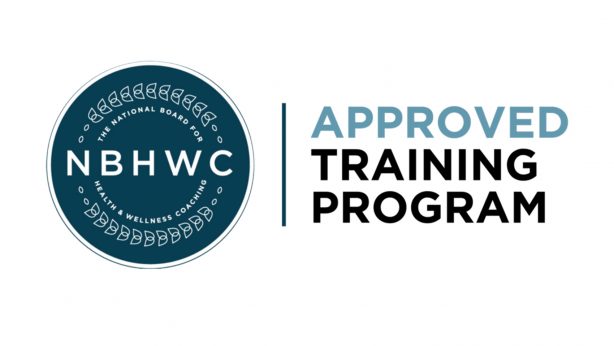
In today’s time, losing weight is no longer considered as just a beautification activity. It is associated with the overall health and wellness of individuals and requires detailed planning, professional guidance, prioritization, and commitment to make healthier choices. One has to create a sustainable, strategic, and effective weight-loss plan and commitment, that aligns well with their busy schedule and work towards attaining it. Balancing work, family, and other responsibilities requires a mindful approach to nutrition, exercise, and self-care.
Let’s look at some of the ways of losing weight with a busy schedule.
- Diet Control: Diet control plays a central role in quick weight loss by influencing calorie intake, metabolism, and overall nutritional balance. A well-managed diet focuses on consuming fewer calories than the body expends, creating a calorie deficit that promotes fat loss. The various aspects of diet control are:
- Prioritize Nutrient-Dense Foods: When time is limited, you must focus on consuming nutrient-dense foods that provide essential vitamins and minerals. Try to choose whole grains, lean proteins, fruits, vegetables, and healthy fats to nourish your body effectively.
- Plan and Prep Meals: Spend time planning your meals for the week and prepare them in advance. Batch cooking on weekends or when you have extra time allows you to have healthy, portion-controlled meals ready to grab during busy days.
- Optimize Snacking: The aim should be to lose weight effectively without stressing your overall health. So, choose healthy snacks to keep your energy levels stable throughout the day. Nutritious options like nuts, seeds, yoghurt, and cut-up veggies are convenient and can be prepared in advance for quick access.
- Stay Hydrated: Proper hydration is essential for overall health and effective well-being. Sometimes, feelings of hunger actually are signs of dehydration. So, make a conscious effort to stay hydrated throughout the day.
Read Also: Simple Ways to Lose and Maintain Weight
- Mental Wellness & Stability: We often ignore the mental part of the weight loss journey and only work on the physical part of it. Stress can lead to emotional eating and weight gain. But mental strength, determination, and wellness are as crucial as the physical, and one should work it through for a sustainable and long-lasting impact of weight loss. Incorporating stress management techniques into your routine, such as deep breathing, meditation, or mindfulness practices, helps keep stress levels in check.
- Set Realistic Goals: Establish achievable weight loss goals that align with your busy schedule. Breaking down larger goals into smaller ones makes the overall process more manageable and helps in tracking progress while staying motivated and mentally strong.
- Get Quality Sleep: Lack of sleep can negatively impact weight loss efforts and mental health. Aim for 7-9 hours of quality sleep each night to support your metabolism, reduce stress, and improve overall well-being.
- Be Flexible and Adaptable: Recognize that life is unpredictable, and there will be days when your schedule doesn’t go as planned. Be flexible and adapt to changes without feeling discouraged. Consistency over time is more important than perfection on any given day.
- Plan for Setbacks: Understand that setbacks are a natural part of any weight loss journey. Instead of viewing them as failures, learn from setbacks and use them as opportunities to reassess and adjust your approach.
- Workout & Exercise: Physical activity and workouts form an essential part of the weight loss journey. Regular physical activity boosts the body’s energy expenditure, creating a calorie deficit essential for weight loss. It enhances muscle mass, which contributes to a higher resting metabolic rate. Exercise also improves insulin sensitivity, aiding in better blood sugar control. Additionally, it supports mental well-being, reducing stress and emotional eating.
- Incorporate High-Intensity Workouts: When time is limited, high-intensity interval training (HIIT) can be an efficient way to burn calories and improve fitness. Short bursts of intense exercise followed by brief periods of rest can be done in a relatively short time, making it suitable for busy schedules.
- Embrace Short Workouts: Fit in quick workouts whenever possible. Even 15-30 minutes of exercise can contribute to weight loss and overall well-being. Look for opportunities to be active, such as taking the stairs or going for a brisk walk during lunch breaks.
- Make Movement a Priority: Incorporate physical activity into your daily routine. Opt for activities like walking meetings, stretching breaks, or using a standing desk to keep your body moving, even when work demands your attention.
To achieve a set goal of losing more weight in less time, consider seeking guidance from a nutritionist, personal trainer, or health & wellness coach. Professionals can provide personalized advice and support tailored to your specific needs and lifestyle. Check our website for more information on health & wellness coach training programs.
Frequently Asked Question
Q1. How does sleep affect weight loss, and what tips can help prioritize sleep in a busy schedule?
Ans: Adequate sleep is crucial for weight loss, as it influences hormones regulating hunger and metabolism. Insufficient sleep can lead to increased appetite and cravings for high-calorie foods. To prioritize sleep in a busy schedule:
- Establish a consistent sleep routine.
- Create a sleep-conducive environment.
- Limit screen time before bedtime.
- Avoid stimulants like caffeine close to bedtime.
- Schedule sleep as a non-negotiable part of the daily routine.
- Practice relaxation techniques.
- Evaluate and adjust commitments to allow for sufficient sleep.
Q2. What are realistic weight loss goals for individuals with busy lifestyles?
Ans: Realistic weight loss goals for busy individuals involve gradual, sustainable changes:
- Prioritize small, consistent changes in diet and exercise.
- Focus on realistic calorie targets and portion control.
- Incorporate short, intense workouts or break exercises into brief sessions.
- Schedule time for meal prep and plan nutritious, time-efficient meals.
- Set specific, measurable goals, adjusting as needed.
- Emphasize overall well-being and stress management alongside weight loss.


